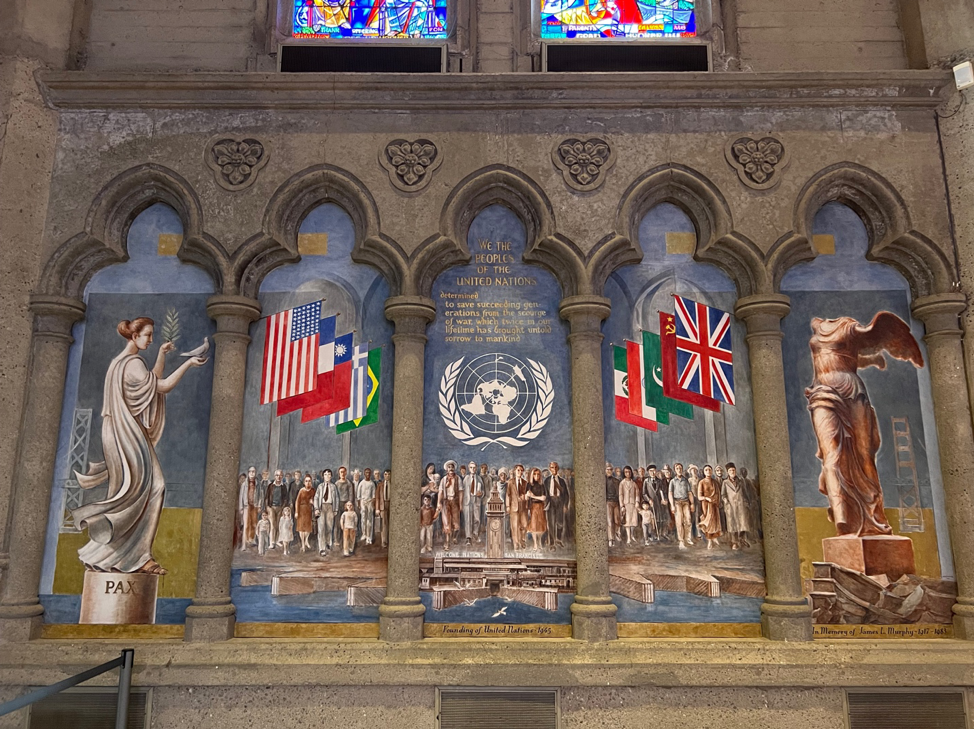San Francisco, July 2, 2023
Introduction: The creation of the United Nations in 1945 marked a turning point in global governance, as nations united to prevent the recurrence of the horrors of World War II. However, the challenges faced by the international community today call for a reinvention of the United Nations to address new perils arising from totalitarian and dictatorial states. As we approach the United Nations’ centennial in 2045, it is crucial to explore innovative ideas that can reshape the organization and empower it to effectively navigate the AI and Digital Age.
Learning from History: The painful lessons of history remind us of the dangers of extreme nationalism and totalitarianism. The atrocities committed by Hitler and the perils of fascism serve as stark reminders of the importance of countering ideologies that seek to claim sovereignty over other nations through force and deception. In the contemporary context, the invasion of Ukraine by dictator Putin illustrates the ongoing danger posed by totalitarian regimes in the era of AI and digital advancements.
Reinventing the United Nations: To prevent the emergence of new perils from dictatorial and totalitarian states, it is essential to reimagine the United Nations for the United Nations Centennial Initiative. Here are some key ideas to consider:
- Global Alliance for AI and Digital Governance: The new United Nations should establish a Global Alliance for AI and Digital Governance, building upon the foundation of the Global Alliance for Digital Governance. This alliance can serve as a platform for collaboration, knowledge-sharing, and policy development to address the unique challenges posed by AI and the digital landscape.
- AI World Society Model: The AI World Society model should be embraced as a guiding framework for shaping the world in 2045. Countries that actively contribute to building the world based on AIWS principles should have a significant role and voting rights within the United Nations. The voting system should not only consider the number of countries but also take into account the contributions made by each nation in advancing the AIWS model and its concepts.
- Leveraging AIWS Assistants: Utilizing AIWS Assistants can enhance the decision-making processes of the United Nations. These AI-driven assistants can provide valuable insights, data-driven analysis, and impartial judgment to assist in making informed decisions on global issues.
- Strengthening the Authority of the United Nations: The United Nations must be empowered with real authority and enforcement mechanisms to ensure that countries respect and implement UN decisions. Strengthening the organization’s ability to enforce its resolutions and hold nations accountable will bolster its effectiveness in maintaining global peace, security, and justice.
- Amplifying Civil Society Influence: Civil society organizations that actively contribute to building the world based on AIWS concepts should have a greater voice and impact within the United Nations Centennial. Recognizing the vital role of these organizations and integrating their perspectives into decision-making processes will foster inclusivity and harness collective wisdom.
The United Nations Centennial Initiative presents an opportunity to reinvent the organization, enabling it to effectively address the challenges of the AI and Digital Age. By establishing a Global Alliance for AI and Digital Governance, embracing the AIWS model, leveraging AIWS Assistants, strengthening the authority of the United Nations, and amplifying the influence of civil society, we can create a revitalized United Nations that is better equipped to tackle global threats and foster a more harmonious and enlightened world in the years to come.
